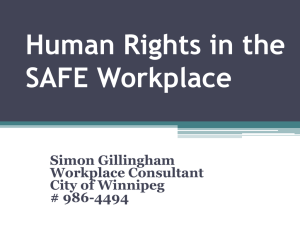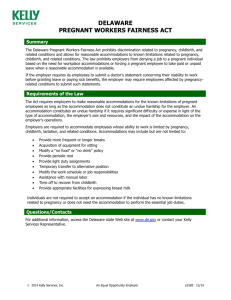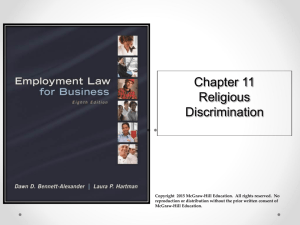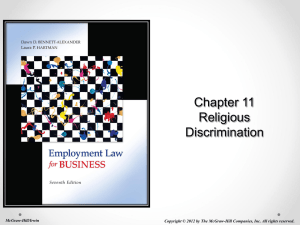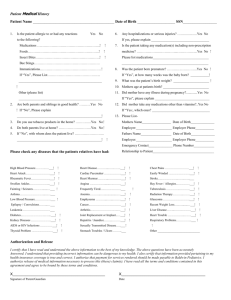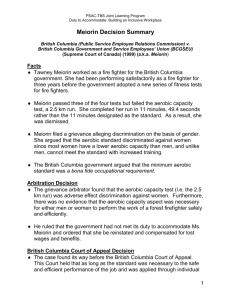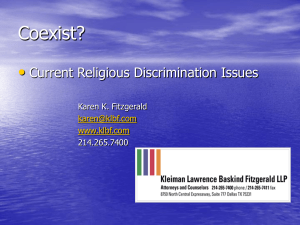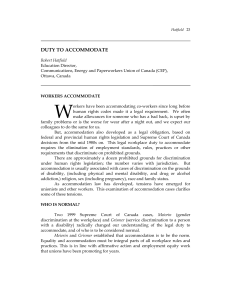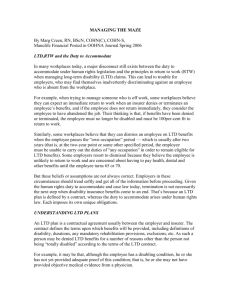Civil Rights Fact Sheet – Religion
advertisement
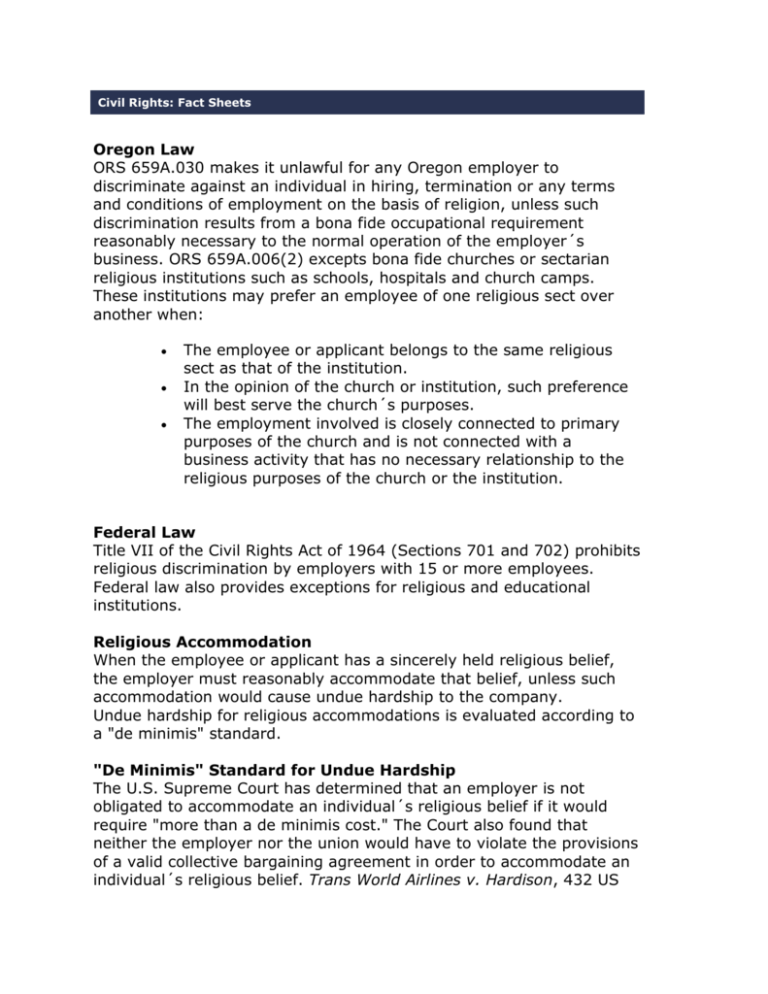
Civil Rights: Fact Sheets Oregon Law ORS 659A.030 makes it unlawful for any Oregon employer to discriminate against an individual in hiring, termination or any terms and conditions of employment on the basis of religion, unless such discrimination results from a bona fide occupational requirement reasonably necessary to the normal operation of the employer´s business. ORS 659A.006(2) excepts bona fide churches or sectarian religious institutions such as schools, hospitals and church camps. These institutions may prefer an employee of one religious sect over another when: The employee or applicant belongs to the same religious sect as that of the institution. In the opinion of the church or institution, such preference will best serve the church´s purposes. The employment involved is closely connected to primary purposes of the church and is not connected with a business activity that has no necessary relationship to the religious purposes of the church or the institution. Federal Law Title VII of the Civil Rights Act of 1964 (Sections 701 and 702) prohibits religious discrimination by employers with 15 or more employees. Federal law also provides exceptions for religious and educational institutions. Religious Accommodation When the employee or applicant has a sincerely held religious belief, the employer must reasonably accommodate that belief, unless such accommodation would cause undue hardship to the company. Undue hardship for religious accommodations is evaluated according to a "de minimis" standard. "De Minimis" Standard for Undue Hardship The U.S. Supreme Court has determined that an employer is not obligated to accommodate an individual´s religious belief if it would require "more than a de minimis cost." The Court also found that neither the employer nor the union would have to violate the provisions of a valid collective bargaining agreement in order to accommodate an individual´s religious belief. Trans World Airlines v. Hardison, 432 US 63, 14 FEP 1697 (1977) Oregon has since adopted this standard. Sincerely Held Beliefs A religious belief is considered to be sincerely held if the individual can demonstrate a strict adherence to the belief. An individual claiming to believe that he or she should not work on a particular day of the week for religious observancemay not have a sincerely held belief if it could be demonstrated that the person routinely accepts work on that day without protest. However, such a belief might still be protected by law if the individual had experienced a change in his or her religious beliefs on a date after work on that day had been performed. Reasonable Accommodation Once an employee or applicant has articulated an employment problem based on a conflict with a sincerely held religious belief, the employer must try to make a reasonable accommodation to the individual´s religious needs. There is no prescribed manner in which an employer is required to accommodate the employee. Employers should consider all possibilities as they apply to their own business requirements. Example: If an employee´s religion prohibits him or her from working on Fridays, the employer is required, absent an undue hardship, to arrange the schedule so that the employee would not have to work on that day. In examining the possibilities of accommodation, the courts have considered the following areas: The nature of the job; whether it is special or unique. The number of employees who can do that job. The size of the establishment (larger establishments would have more possibilities for accommodating an individual). The effects of transferring the employee. The effects of accommodation on other employees; union contract agreements (whether seniority provisions will be violated). Scheduling and overtime problems. Undue Hardship When an employer is unable to accommodate an individual´s religious belief without undue hardship to the business, the employer is not required to make accommodation. Equal Employment Opportunity Commission guidelines specify three areas that can constitute undue hardship: Business necessity Financial cost to the employer Resulting personnel problems Dissension or dissatisfaction of co-workers is rarely enough to cause an undue hardship. In such situations, the courts have looked to see if the employer has done everything possible to minimize the problems.
